A new letter seen by The Shift reveals exactly how a Seychelles-registered offshore company with links to Yorgen Fenech’s 17 Black was used to set the stage for kickbacks in Malta’s tainted wind farm deal.
In 2015, majority State-owned Enemalta took over a Public Private Partnership (PPP) concession to install 23 horizontal axis turbines of 2MW each on a hill in Mozura in the south of Montenegro whose government leased the land for the wind park for 20 years.
The entire investment is reported to be worth €90 million — a considerable jump from the original €65 million the government of Montenegro had initially signed with Barcelona-based Fersa Energia Renovables in 2010 for the very same deal.
Neither side explained why the price went up so much, but a letter between Cifidex Ltd and Enemalta has shed new light on how the cost was inflated — and who may have benefitted.
Many figures in the letter appear to have been fabricated to bloat the sale price paid by Enemalta.
According to insiders who spoke to The Shift earlier this year, the nearly €6.8 million difference between actual and fabricated costs was then transferred to the private accounts of Montenegrin, Azerbaijani and Maltese individuals as kickbacks.
In order to know who benefitted from the deal, it’s necessary to understand the central role played by a Seychelles-based offshore company called Cifidex Ltd.
Enemalta admitted in its 28 June 2020 statement that it had paid Cifidex €10.3 million for the acquisition of Mozura wind park shares just two weeks after Cifidex Ltd acquired them from Spanish Fersa Energia Renovables (99%) for €2.9 million, and from Montenegro-based Celebic Ltd (1%) for €650,000.
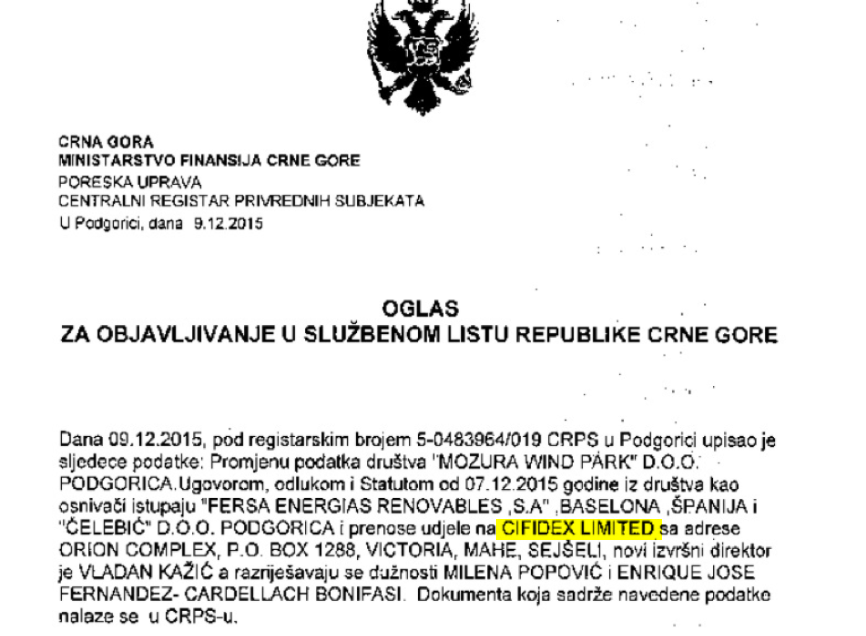
Excerpt from Tax filings uploaded by the Montenegrin Government clearly showing Fersa transferring its shares in the Mozura Wind Park to Cifidex.
In other words, the price paid by Enemalta was nearly €6.8 million above what it had declared as the purchase price in Montenegro.
Cifidex’s role in the transaction between the Montenegrin and Maltese officials was concealed during all Cabinet meetings of the Montenegrin government, led at the time by Prime Minister Milo Djukanovic.
The Montenegrin Ministry of Economy even went as far as to deny Cifidex had any role in the transaction, despite the company’s presence in the Montenegrin Business Register and in openly available online documents from the Ministry of Finance.
The letter sent by Cifidex to Enemalta presents a very different story.
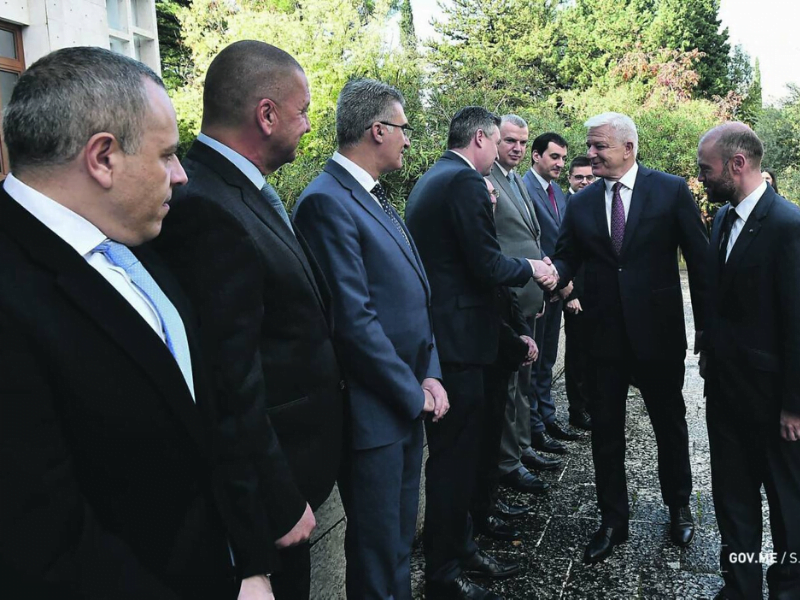
Former Prime Minister Joseph Muscat in Montengro with his chief of staff Keith Schembri, ambassador to Montenegro Karl Izzo, and former ministers Carmelo Abela and Konrad Mizzi.
The letter reveals key details
The Shift has identified several key differences between the share purchase agreement and the letter sent to Enemalta by Cifidex.
On 28 December 2015, Cifidex sent a letter to Enemalta (referred to as Purchaser of Mozura shares) and Chinese Shanghai Electric Power Company Ltd, which ultimately became the majority owner of the Mozura Wind Farm. It was signed by Montenegro-based lawyer Bojan Vuković on behalf of Cifidex.
In that letter, Cifidex states that it is obliged to compensate Fersa Energias Renovables for the wind measurement fee of €1.675 million.
Yet, in the share purchase agreement between the two companies, signed in Podgorica on 12 Feb 2015, clause 3.1.4. states that “the Seller (Fersa) shall fully release the Investor (Cifidex) from the obligation to pay the Seller the wind measurement fee (€1.675 million) and confirm in writing to the Purchaser that such entities have been so released”.
A further discrepancy is found in the letter, which cites an obligation to compensate BWP Montenegro Ltd in the amount of €1.4 million under the termination agreement.
A termination agreement sum is not mentioned at all in the purchase agreement between Fersa and Cifidex signed on 12 Feb 2015, or in its subsequent amendments.
There is only one reference to Fersa’s debt of €285,000 to BWP Montenegro, which Cifidex was to pay BWP Montenegro from the share price of €2.9 million due to Fersa.
The final amendment to the share purchase agreement signed on 9 November 2015 states that “the Seller (Fersa) has no obligations to BWP Montenegro Ltd” thus releasing the Purchaser (Cifidex) of further commitments.
Another example of bloated figures is the price allegedly paid to Tomislav Celebic for his 1% share of Mozura Wind Park Ltd. In the December letter to Enemalta and SEP, Bojan Vujovic states that Celebic Ltd was paid €800,000, but in a separate contract signed on 10 February 2015, the price stated is €650,000 – the actual figure confirmed to The Shift by Celebic Ltd.
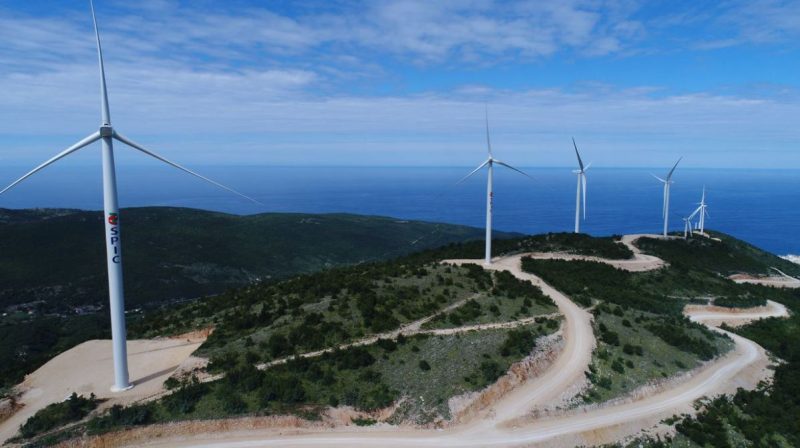
Mozura wind farm, Montenegro.
Who’s who?
BWP Montenegro Ltd’s director was Milena Popovic, the daughter of long-time union leader Danilo Popovic, who was allegedly a failed mediator for kickbacks from the Spanish company Fersa Energia Renovables (the original Mozura shareholder) to officials in Montenegro.
The official representative of Cifidex, lawyer Bojan Vujović, told The Shift over the phone that he was just a proxy, and had been randomly selected from the attorney public register. He never met anyone from the Seychelles-based company but only followed instructions from Alun Griffiths, director of GSA Services Ltd, another offshore company registered in the Seychelles which was managing Cifidex.
It later emerged that Vujović is the first cousin of Branimir Gvozdenovic, the former Minister of Sustainable Development and Tourism, who remains a close associate of Montenegrin President Milo Djukanovic.
The Cifidex-appointed director of Mozura in Montenegro, Vladan Kazic, told The Shift in a short telephone conversation that his appointment had been “fictive” and that he “cannot remember anything”.
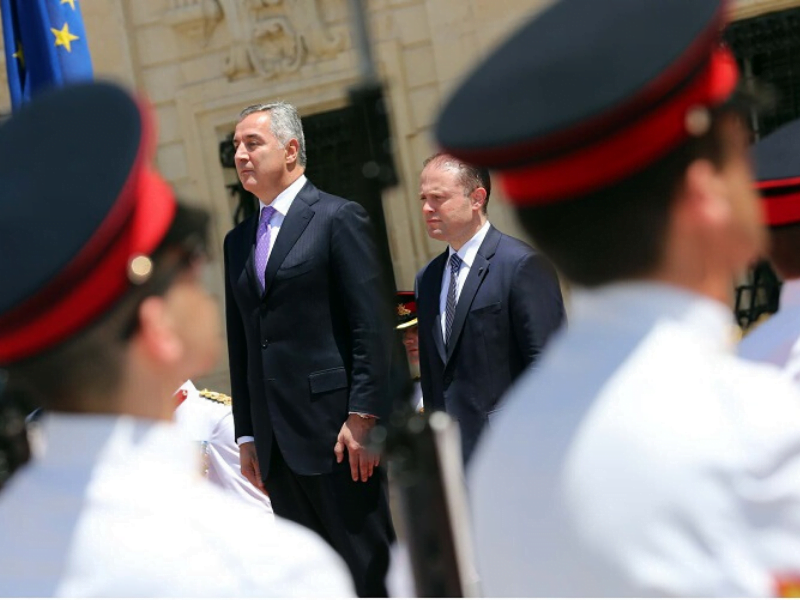
Milo Djukanovic in Malta with former Prime Minister Joseph Muscat in Valletta, Malta. Photo: DOI / Omar Camilleri.
More links to Azerbaijan
SOCAR has strong business links in both Montenegro and Malta. Azerbaijan would be a key player in both countries corruption-plagued energy projects.
Montenegro Prime Minister Milo Djukanovic made an official visit to Azerbaijan on 17-20 September 2014. Ten days later, Cifidex got a new owner: another offshore company called GSA Services Ltd (on 30 Sep 2014).
At about the same time, Cifidex entered into acquisition talks with the then shareholders of the Mozura wind farm project.
The Spanish company Fersa was effectively elbowed out by the Montenegrin government. The previously unknown Seychelles-based Cifidex stepped in in late 2014 and signed a promise of sale agreement (SPA) with Fersa on 12 February 2015.
In its first quarterly report of 2015, the Montenegrin Central Bank reported that the land on which the wind farm was to be built was sold to a London-based investment company called Vestigo Capital. Companies linked to Vestigo acted for both SOCAR and one of its subsidiaries, Azmont Investments, in this deal. Vestigo is denying this.
Djukanovic was in Azerbaijan again on 27 October 2015, where he spoke with President Ilham Aliyev. That same day, the government of Montenegro publicly announced that it would carry out the project with Enemalta.
Just like with Electrogas in Malta, the Mozura wind farm project rips off Montenegrin taxpayers. The Montenegrin electrical utility (EPCG) is obliged to pay the Chinese State-led consortium now owning the Mozura wind farm about three times the regular market price for the electricity generated in Mozura – a gain of some €115.2 million in the next 12 years.
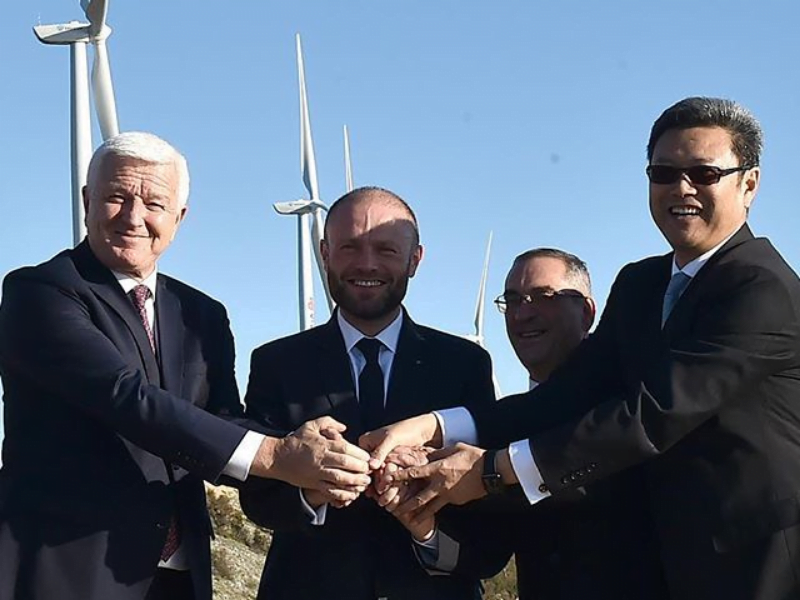
Former Prime Minister Joseph Muscat (centre) with former Energy Minister Joe Mizzi in Montenegro.
It is well known that both disgraced former Prime Minister Joseph Muscat and the president of Montenegro Milo Djukanovic are close to the ruling Aliyev family. All three men have been named OCCRP’s Person of the Year in Organized Crime and Corruption (Ilham Aliyev in 2012, Djukanovic in 2015, and Muscat in 2019).
In a public statement in late summer 2020, Djukanovic denied any connection to alleged corruption in Malta, accusing the opposition, NGOs and independent media of “trying to damage his authority as president, thereby harming the country’s reputation”. He stressed that his “only partner was a state-owned company (Enemalta)”, adding “Montenegrin authorities do not know anything about suspicious business in Malta and have nothing to do with it”.
The Mozura scandal and the subsequent cover up contributed to the defeat of Djukanovic’s Democratic Party of Socialists in the general election of 30 August 2020. Djukanovic no longer commands parliament, nor controls the new government. However, his communist party (DPS) which had continuously ruled the country for 75 years implemented a scorched earth policy before vacating the ministries.
There are widespread reports about missing folders with documents to cover up corruption and embezzlements of earlier Djukanovic’s ministers and other officials. The Mozura project is in the purview of newly created Ministry for Capital Investments which is yet to start searching for all pertinent documents, as the newly appointed minister Mladen Bojanic told the Shift, and he may need the help of his Maltese counterparts to unravel the whole story.
The new Montenegrin Speaker of the House has already hinted at a parliamentary inquiry into the scandal.
Additional reporting by Vladimir Otasevic.

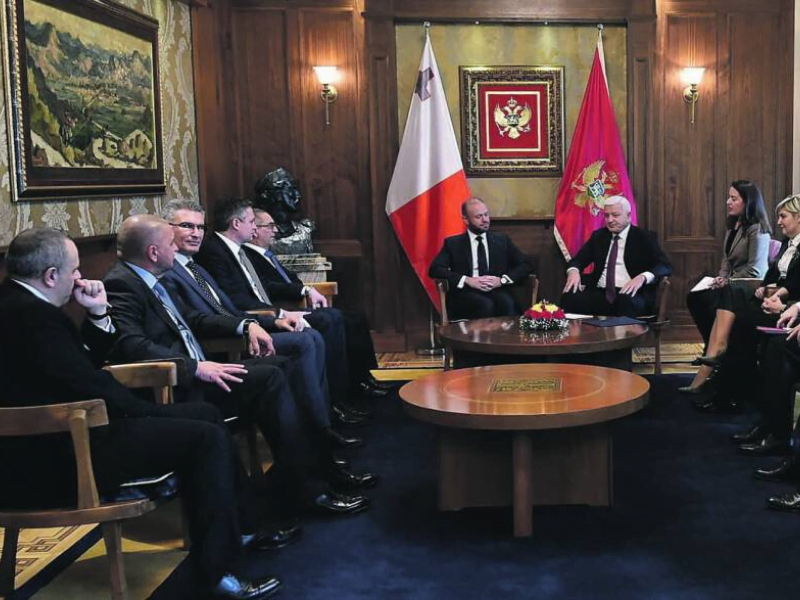

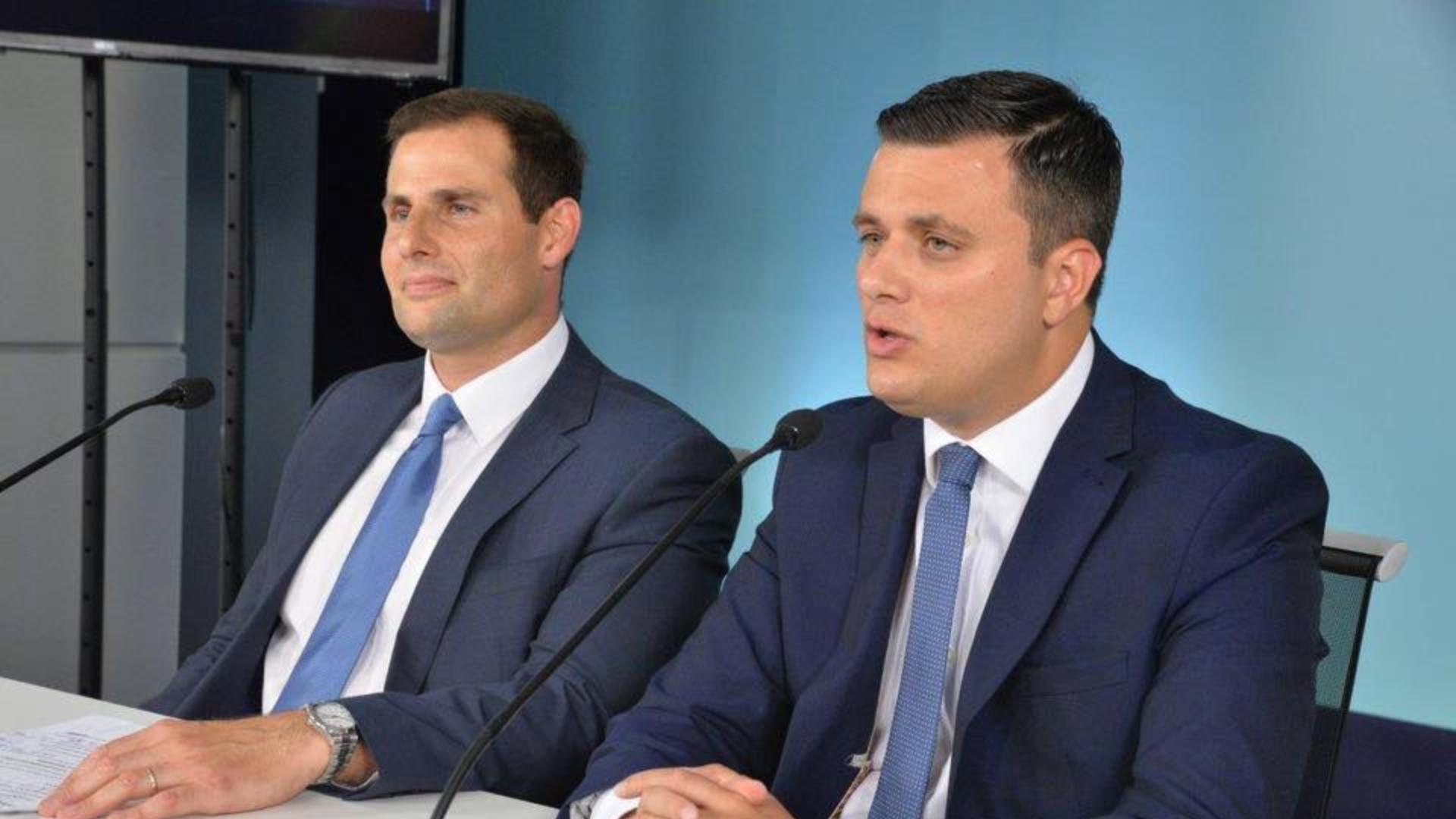










All that handshaking was a confirmation that all the kickbacks were received. A bunch of damn crooks especially Joey.
And yet – no arrests made u l-haddiem onest jaghmel tajjeb GHAS-SERQ sfrenat.